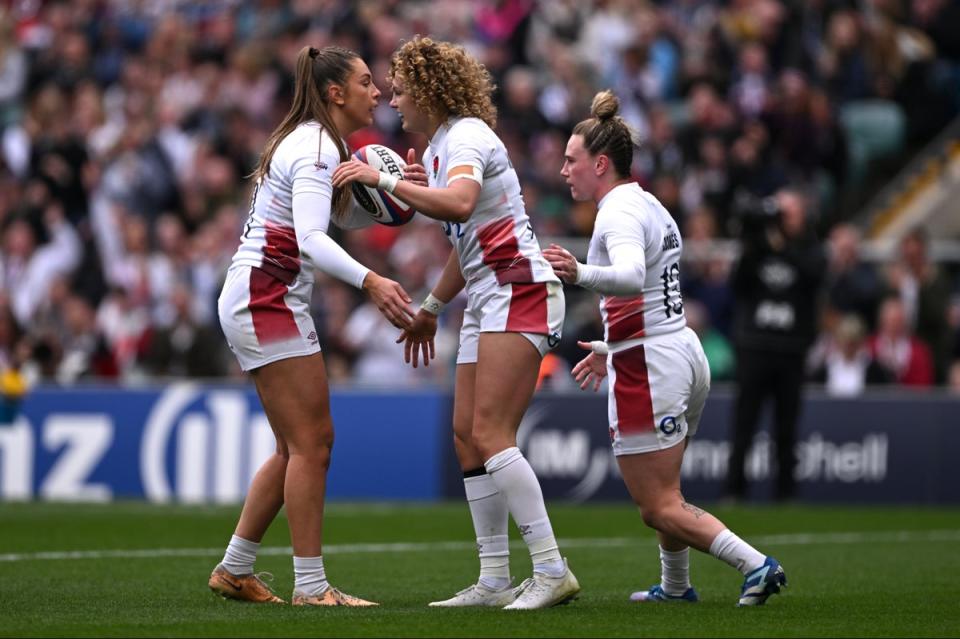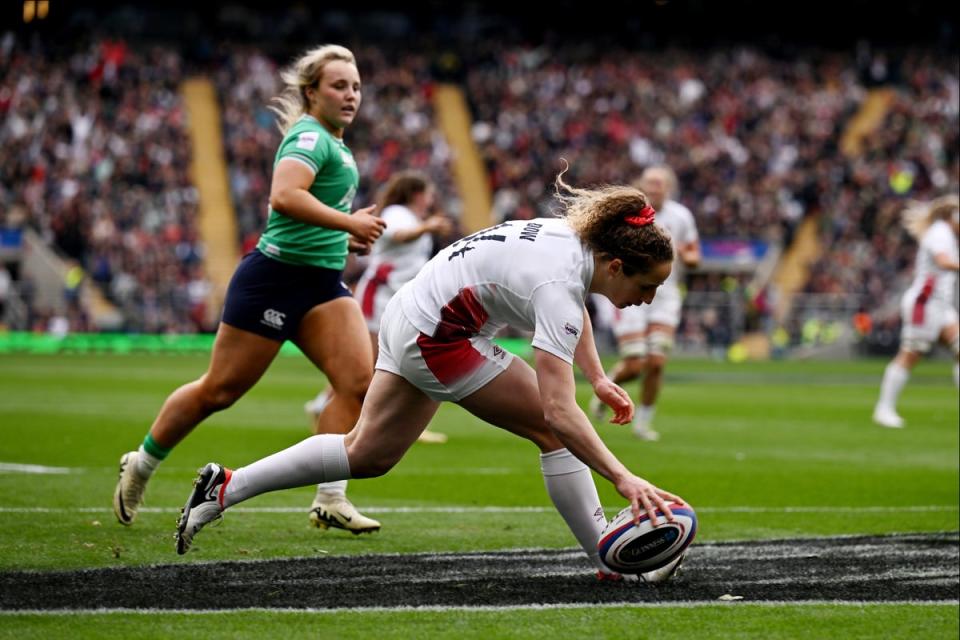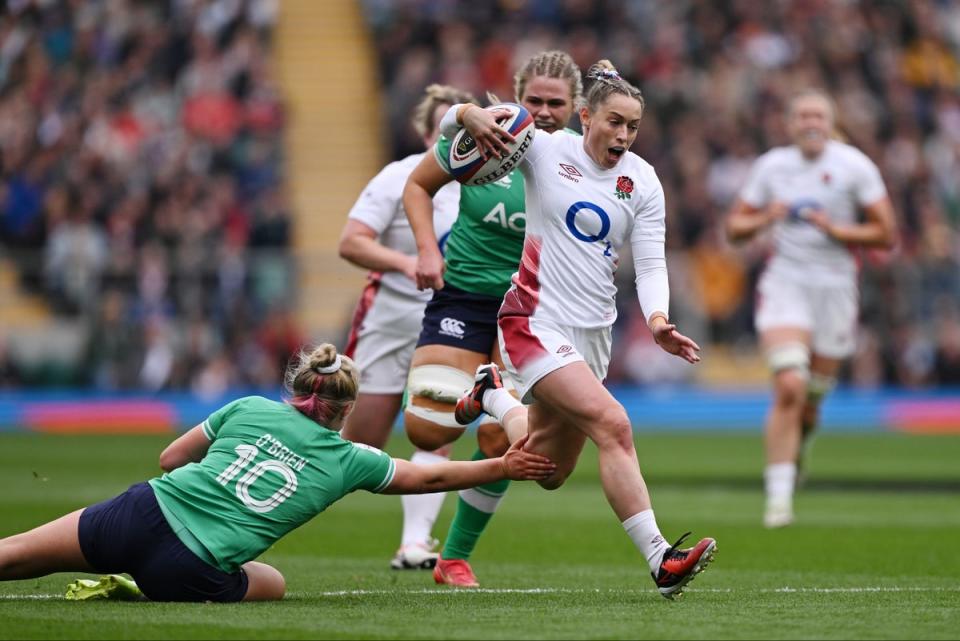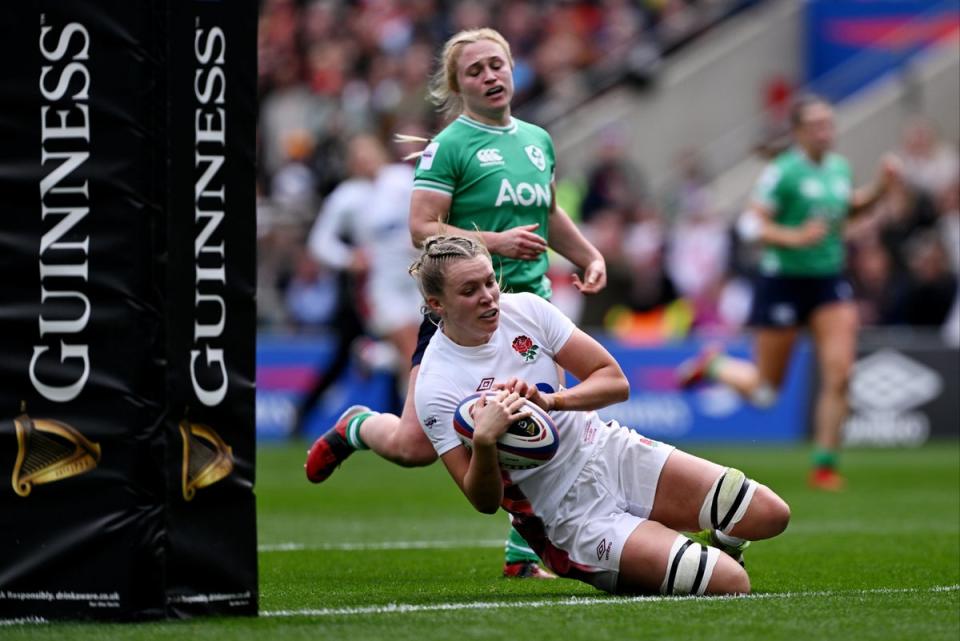Rampant Red Roses raise same difficult Women’s Six Nations questions in Ireland thrashing

Even by the standards of this peerless England side, this was a scintillating slaughter of the kind seldom seen in modern rugby. The Red Roses had ominously warned in the week that they were yet to click in this competition despite three substantial scorelines – how right they were.
Perhaps the continuingly swelling crowds will one day revel in a close contest, but for now they are simply being swept up in the majesty of a side soaring to new heights. While France may pose a test next weekend, England are now in another stratosphere to their other Six Nations “rivals”. There remains a certain tedium to knowing the victor on arrival but it is impossible not to admire the ambition with which they now carve, athletic advantages allied to razor sharp phase play, all enhancing a remarkable winning machine.
It mattered not to the crowd that the result was so one-sided but it nonetheless prompts familiar questions. There is a certain gladiatorial pleasure to the manner in which the Red Roses slay the rest in this competition but it suits no-one for them to have to wait for the final round to meet anyone capable of matching them even in parts.

There are few obvious solutions but the gap appears to be growing. In this campaign, England have implemented a new attacking shape and defensive system, dealt with two red cards and injuries to several key figures – Lark Atkin-Davies departed with a serious-looking lower leg issue here – yet have barely broken stride. They will travel to Bordeaux next weekend on a ten-match winning run against their hosts that, based on the performances of the pair in this tournament, looks unlikely to end.
Unions and the Six Nations themselves are examining their pathway set-ups to see if they can instigate change from below. But it will take time for anyone to catch-up. This was an Ireland team who had arrived on the back of their best performance in years against Wales and yet from the minute the whistle blew, it was a question of how many England would get.
The build-up to last year’s fixture between these two had been dominated by talk of a record scoreline, a scenario that never materialised with England sloppy and Ireland steely. But entering this game, it had been five years since the visitors last scored a Women’s Six Nations point against the Red Roses, and the divide was all too evident in the opening quarter.

Where Ireland kicked readily, England ran everything, Holly Aitchison and Meg Jones’ distributing hands stressing the edges of an improved Irish defence nonetheless outmatched against England’s squad of sprinters. But it was up the middle the telling bursts were made, first Atkin-Davies scampering away in the lead-up to a brilliantly-taken Abby Dow try, before Mo Hunt sniped twice in quick succession through gaping space adjacent to the ruck to snare a score.
Do-everything centre Jones hit a Hunt pass like a sledgehammer to add a third, and the bonus point was wrapped up inside 20 minutes by a galloping Zoe Aldcroft. Ireland, like everyone bar France in this competition, simply had no match for England’s size and speed, the Red Roses using every inch of the manicured Twickenham lawn.

Scott Bemand’s side did at least break their long pointscoring drought in the fixture with a Dannah O’Brien penalty, a green dot on a canvas painted rose red. Kildunne, the player of the tournament so far, had thrice threatened to dance home from inside her own half but eventually ran in a score unopposed from all of five metres, while Dow was similarly untouched on her way to finishing off a Kildunne pass.
Out came Sophie Ellis-Bextor to provide the half-time interlude, the “Murder on the Dancefloor” star keeping the party going, the jokes about England’s dominance writing themselves. Jess Breach sprinted in a seventh try after the restart before Sadia Kabeya tumbled to an eighth and the record books were consulted.
Ireland had a little life left in them, a strong scrum drawing a penalty that was poked to the corner. When the driving maul was felled by Lucy Packer within sight of the line, Ireland gained seven and England lost a player.

Not that it mattered. England’s four outside backs added five more tries and into the 80s they accelerated. Maddie Feaunati’s first Test try was her side’s 14th and final of an afternoon that illustrated both the progress and problems of this tournament.

